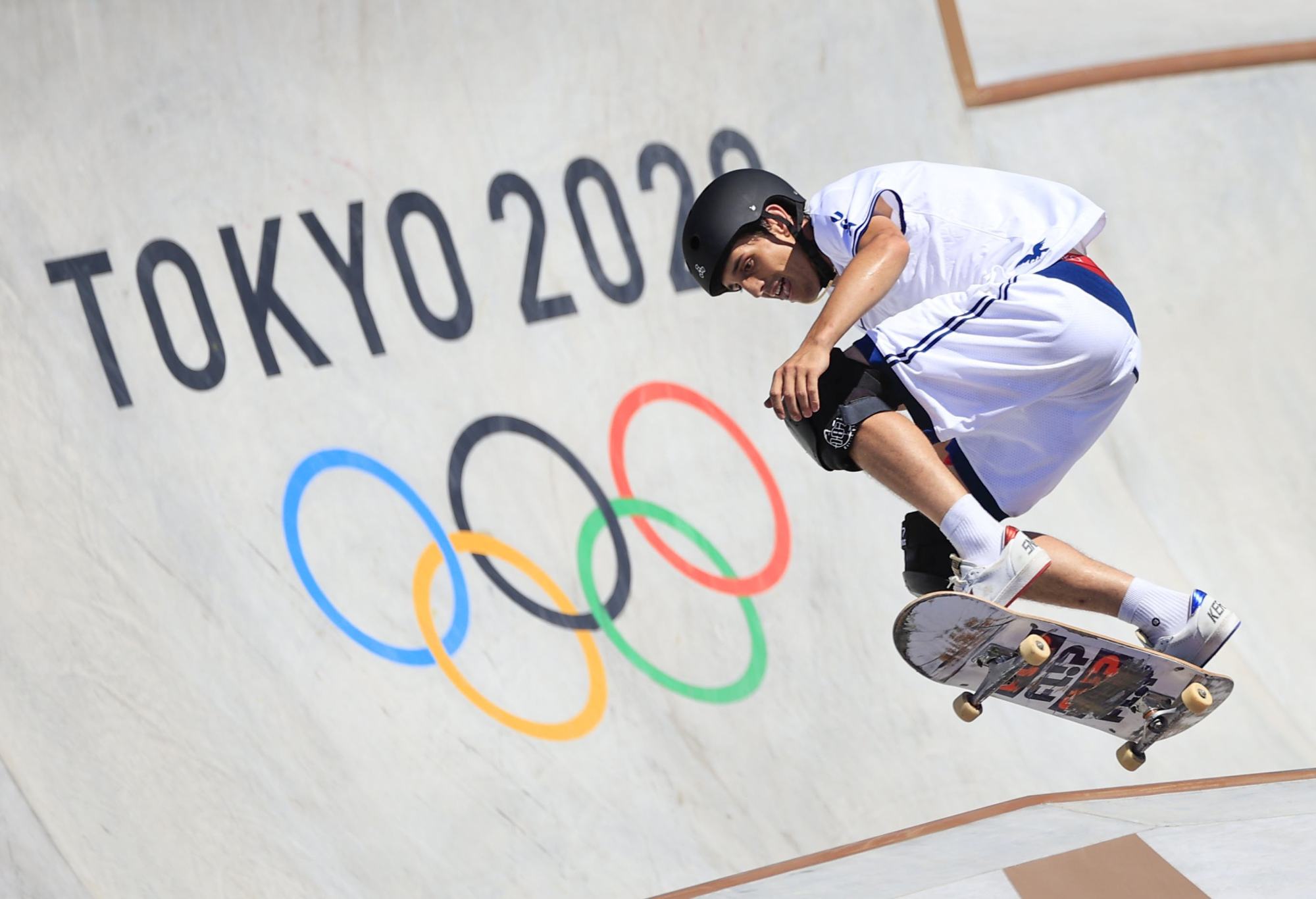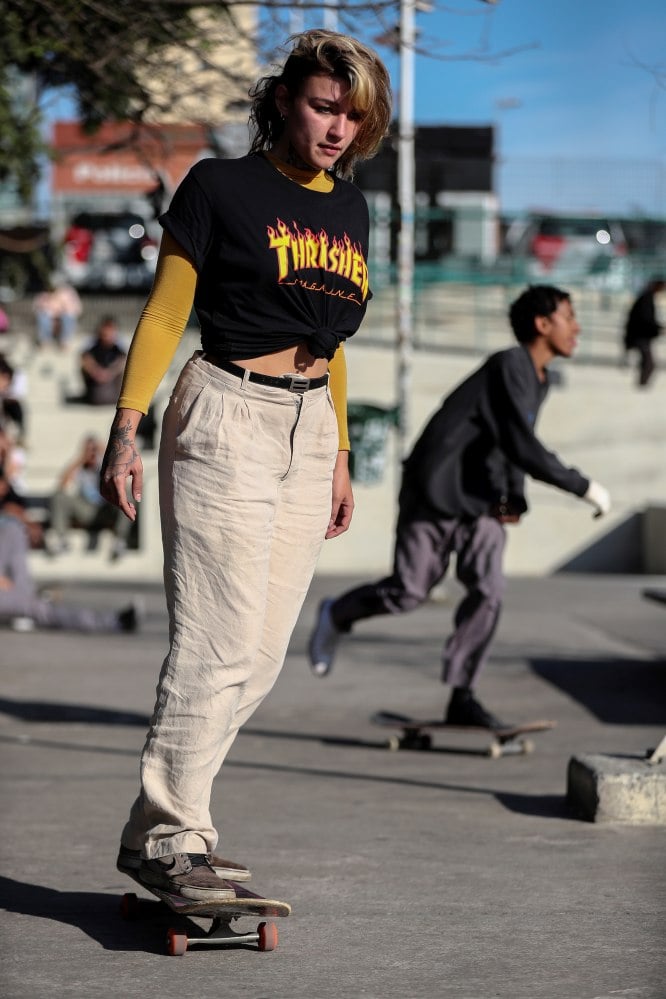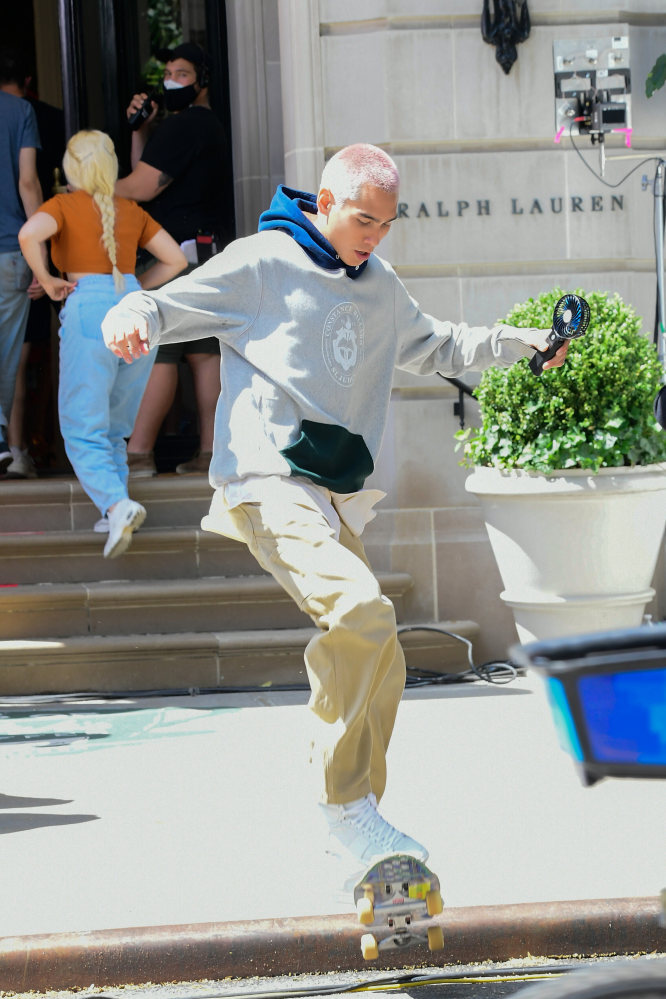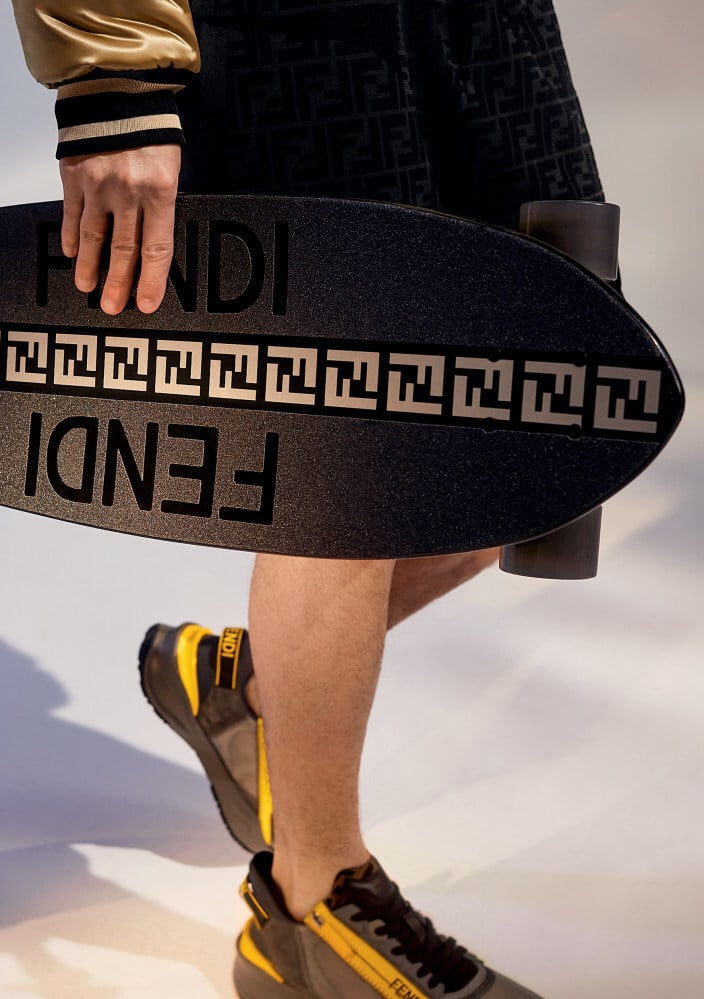
Skate style, from Tokyo Olympics to the fashion runway: why Louis Vuitton, Gucci, Fendi and other luxe brands are leaning into skateboarding
- Hermès sells skateboards, Louis Vuitton has skate-inspired sneakers – luxury fashion has embraced skate culture, but some skaters wonder how long that will last
- Famed skaters such as Dylan Rieder, Blondey McCoy and Evan Mock regularly front ad campaigns and walk runway shows for brands like Gucci, Burberry and Prada
Still, there was one unqualified source of joy for Japan at the Games – the first ever skateboarding events, where Japan-born skaters won six of the 12 medals on offer.
The image of 19-year-old Sakura Yosozumi, Kokona Hiraki (now 13, but 12 when she won) and the Miyazaki-born, 13-year-old British skater Sky Brown on the medal podium for the women’s park skateboarding event pointed to not just Japan’s strength in skateboarding but also the youthful vibrancy of a sport at the peak of its popularity.

And, more pointedly, several of fashion’s most venerable houses have aggressively appropriated skating into their recent runway collections. Many brands, including Hermès, Chanel, Versace and Fendi, are now even selling skateboards.


“Skating has never been more popular,” says Julius Brian Siswojo, the owner of 8Five2, Hong Kong’s most well-known skateboard and street fashion store that opened for business in 1999.
Siswojo believes high fashion is attracted to skating thanks to its authenticity and “attitude” to style, which is more accepting of mixing and matching. “Street skateboarders tend to mix and match to make them look good without forcing it, meaning not wearing it just because of the branding but because it’s a good item,” he says.

To coincide with the first ever Olympics skate competition, 8Five2 launched a vast pop up – complete with an indoor skate park – at the K11 Musea shopping centre in Hong Kong this summer, dubbed Street/Park. To emphasise the symbiotic relationship between fashion and skating, the centrepiece of the exhibition is one of the largest and rarest collections of Nike Dunks showcased in the world.

Launched in 2020 and retailing for over US$1,200, “A View” sneakers garnered reams of coverage in the fashion press and buoyant demand from non-skaters – but the reaction from skaters was mixed.
Romain Pitz has been an amateur skater for 24 years and recently relocated to Paris from Hong Kong. He is wary of the recent attention lavished on skating by luxury brands, saying that none to his knowledge are sponsoring skaters, competitions or “creating products that kids can buy and get into skating”.
“I have no problem when the brands actually support the skate industry,” he says.
The proliferation of luxury skate products, particularly boards, is particularly irksome to skaters like Pitz. “Most skaters struggle to make a living, there’s not much money in the skate industry. But the luxury brands are like, ‘Please pay a grand for this skateboard that will go on a wall, never be skated, and none of the profit will go to the skate industry.’”

This tension between skateboarding authenticity and the luxury industry’s propensity for faddish cultural appropriation does lead to questions on whether the sport can remain in the fashion mainstream.
For skaters like Pitz, the “outsider” and “nonconformist” edge to skating means that it can never truly be mainstream. More importantly, the relationship between skating and high fashion is a “one-way street”.
“As soon as skateboarding is not cool any more, they’ll drop it because they’re not doing it for skate culture but for a renewal in their marketing strategy,” Pitz says. “The goal is selling more stuff, not supporting skateboarding.”


Siswojo is a little more positive on the long-term prospects of skating staying front-of-mind for designers, but with a caveat.
“I’m sure skating can be a long-term trend as long as these high-end brands are working with the right skateboarders,” he says. “Otherwise, it will lead to a backlash.”

